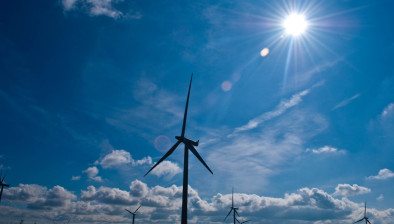Government outlines green commitments in 2019-20 Programme for Government
A £3 billion Green Investment Portfolio and a vow to end polluting gas heating in new homes within five years are part of the Scottish Government’s next steps to tackle climate change, First Minister Nicola Sturgeon announced in Parliament yesterday.

Announcing this year’s Programme for Government, Ms Sturgeon also unveiled plans for a Heat Networks Bill, a consultation on new buildings regulations, green city region deals and said decarbonisation will be the primary mission of the Scottish National Investment Bank.
An additional £20 million of funding will help tackle the public health emergency of drug deaths in Scotland. The Child Payment, which will benefit low-income families with young children by £500 each year, will now be introduced by Christmas 2020 – ahead of the original schedule.
The measures include:
- a ‘Green New Deal’, harnessing the power of the Scottish National Investment Bank and creating a £3bn package of investments to attract green finance to Scotland
- develop regulations so that new homes from 2024 must use renewable or low carbon heat
- targeting a minimum of £30m of support for renewable heat projects
- making the first Job Start Payments in spring 2020
- putting in place a Women’s Health Plan to tackle women’s health inequalities
- continuing to support mental health, with a 24/7 crisis support service for children and young people and their families, a community wellbeing service enabling self-referral for children and young people and a £5 million investment in a community perinatal mental health service across Scotland
- taking forward planning to mitigate the worst consequences of a ‘no deal’ Brexit
The First Minister said: “This Programme for Government will put health, prosperity and wellbeing at its heart, and will reinforce Scotland’s place as a dynamic, open, innovative economy.
“In the last 12 months we have made important progress in creating a better and fairer country and this year’s Programme for Government builds on that record.
“Earlier this year, I acknowledged that Scotland – like the rest of the world – faces a climate emergency. We are now committed to achieving net-zero greenhouse gas emissions by 2045 at the latest – earlier than any other UK nation.
“This year’s Programme for Government is an important part of our response to the climate emergency, containing measures which will reduce emissions while supporting sustainable and inclusive growth.
“It sets out actions which will make a difference for years to come. It details measures which can help make our country the best in the world to grow up, learn, work and live. It meets the challenges of the future while staying true to our enduring values.
“However, alongside these crucial steps, we will continue to plan for the possibility of a ‘no deal’ Brexit and, as long as this remains a risk, the Scottish Government will work as hard as we can to mitigate the impact on families, communities and businesses across the country.”
Morag Watson, director of policy at Scottish Renewables, said: “It is pleasing to see the Scottish Government put the climate emergency at the heart of its programme, particularly with welcome new commitments to a Heat Networks Bill and plans to phase out gas in new homes from 2024. It is essential that Scotland’s political parties come together to ensure these ambitions become a reality.
“The next year is likely to be a politically and economically challenging one for Scotland’s renewable energy sector. The Scottish Government’s commitment to tackling the climate emergency and delivering a Green New Deal for Scotland come as a welcome boost to the 17,700 people who work in Scotland’s renewable energy industry, and the many more who could if Scotland fulfilled its renewables potential.
“The measures outlined in the Programme for Government aimed at supporting Scotland’s renewable electricity sector are welcome, but Scotland’s renewable energy industry will only be able to rise to the challenge if government regulation and support is consistent with the needs of the climate emergency.”
The Climate Emergency Response Group, a group of civic and business, welcomed the Scottish Government’s response to the climate emergency as outlined in the Programme for Government.
Speaking for the group, Mike Thornton, group director of operations, Energy Saving Trust, said: “We welcome and are heartened by the broad package of measures in response to the climate emergency which were announced today in the Programme for Government. These are the bold and transformational policies, spanning sectors from transport, agriculture, buildings to procurement, that are needed to show we are serious about addressing the climate emergency. An emergency requires an emergency response.”
The commitments to district heating do not go far enough to ensure all Scots have warm homes, the Scottish Greens have said.
Scottish Greens environment and energy spokesperson, Mark Ruskell, said: “£30m for innovative low carbon heating projects is a flash in the pan, not the kind of transformational change Scotland needs, and which I called for this summer.
“Heating our buildings accounts for half of Scotland’s greenhouse gas emissions. Meanwhile, a quarter of all homes in Scotland are in fuel poverty.
“The Scottish Government should be committing to massive expansion of low carbon heat networks and dramatically reduce emissions from heating by retrofitting inefficient homes and bringing forward regulations on new buildings now.
“The Scottish Green New Deal, which we launched last week, proposes more ambition on this including a programme of deep retrofits and the requirement all new homes meet Passivhaus or other net-zero standards. The climate emergency requires an emergency response, not tinkering round the edges.”







